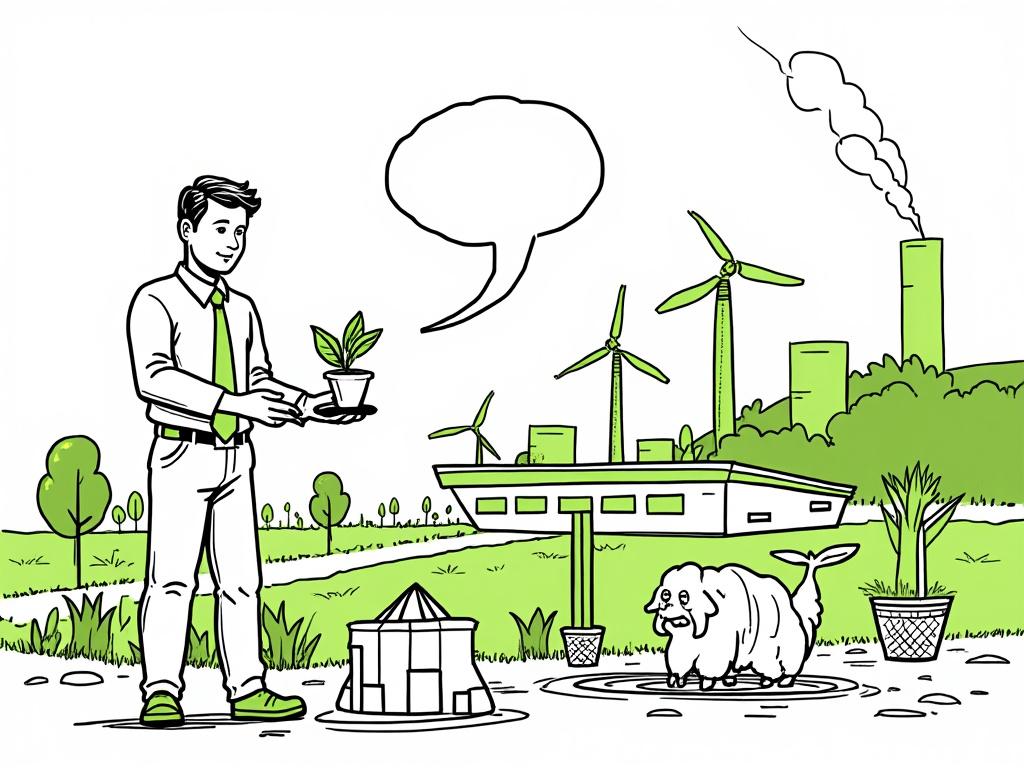
Greek Agribusiness and Organic Farming: Unlocking Golden Opportunities for 2025
Reading time: 12 minutes
Ever wondered why savvy investors are increasingly turning their attention to Greek agriculture? You’re about to discover why 2025 could be the perfect year to dive into this ancient land’s modern agricultural revolution.
Table of Contents
- Market Overview: Greece’s Agricultural Renaissance
- The Organic Farming Boom
- Key Investment Opportunities
- Navigating Challenges and Solutions
- Practical Entry Strategies
- Success Stories and Case Studies
- Your Agricultural Investment Roadmap
- Frequently Asked Questions
Market Overview: Greece’s Agricultural Renaissance
Greece’s agricultural sector is experiencing a remarkable transformation. After years of economic challenges, the country’s agribusiness is emerging stronger, more innovative, and increasingly attractive to international investors. The numbers tell a compelling story: Greek agricultural exports reached €6.2 billion in 2023, representing a 12% increase from the previous year.
Key Market Indicators:
- Agricultural GDP contribution: 4.1% (above EU average of 1.5%)
- Organic farming growth rate: 15% annually
- Export market expansion: 18 new international markets opened in 2023
- EU funding allocation: €2.8 billion for 2021-2027 period
What makes this particularly exciting? Greece’s unique positioning combines Mediterranean climate advantages with increasing global demand for premium, authentic food products. The country’s strategic location serves as a gateway between Europe, Asia, and Africa, offering unparalleled logistics advantages.
Climate Advantages and Geographic Benefits
Greece’s Mediterranean climate provides over 300 days of sunshine annually, creating ideal conditions for diverse crop cultivation. The country’s varied topography—from coastal plains to mountainous regions—enables year-round production of different crops, maximizing land utilization and profit potential.
Dr. Maria Konstantinidou, Agricultural Economics Professor at Athens University of Economics, notes: “Greece’s agricultural renaissance isn’t just about traditional farming. We’re seeing a sophisticated blend of ancient knowledge and modern technology that’s creating unprecedented opportunities for investors who understand the market dynamics.”
Government Support and EU Funding
The Greek government has implemented the National Strategic Plan for Agriculture, allocating significant resources to modernize farming practices and support new entrants. This includes subsidies for organic conversion, technology adoption grants, and export promotion programs.
The Organic Farming Boom
Here’s where things get really interesting: Greece’s organic farming sector is absolutely exploding. The country now ranks among the top EU producers of organic olive oil, wine, and honey, with organic farmland increasing by 89% over the past five years.
Organic Sector Growth Visualization
Why Organic Farming in Greece Makes Sense:
The organic premium in Greek markets averages 40-60% above conventional prices, and international demand continues outpacing supply. European consumers increasingly seek authentic, traceable organic products, and Greece’s reputation for quality positions it perfectly to capture this growing market.
Certification and Market Access
Greece’s organic certification process, while thorough, is streamlined compared to many other countries. The conversion period for organic certification typically takes 2-3 years, during which farmers can access transitional support programs and begin building market relationships.
Key Investment Opportunities
Let’s dive into the specific opportunities that smart investors are targeting for 2025:
High-Value Crop Production
Olive Oil and Table Olives: Greece produces some of the world’s finest olive oil, with organic varieties commanding premium prices in international markets. Investment opportunities include modern processing facilities, direct-to-consumer brands, and sustainable farming operations.
Wine and Viticulture: Greek wine is experiencing a renaissance, with indigenous grape varieties gaining international recognition. Organic wine production offers particularly attractive margins, with some producers achieving 300% price premiums over conventional alternatives.
Aromatic and Medicinal Plants: Greece’s mountainous regions are ideal for cultivating high-value herbs and medicinal plants. Oregano, thyme, sage, and other Mediterranean herbs are experiencing unprecedented global demand, especially in organic formats.
Agritech and Innovation Opportunities
Technology adoption in Greek agriculture is accelerating rapidly. Precision farming, drone monitoring, and IoT-enabled irrigation systems are transforming traditional farming practices. Early investors in agritech solutions specifically designed for Mediterranean conditions are positioning themselves for significant returns.
| Investment Category | Initial Investment Range | Expected ROI | Payback Period | Risk Level |
|---|---|---|---|---|
| Organic Olive Groves | €200,000-€500,000 | 15-25% | 5-7 years | Medium |
| Vineyard Development | €300,000-€800,000 | 20-35% | 4-6 years | Medium-High |
| Herb Cultivation | €50,000-€150,000 | 25-40% | 2-3 years | Low-Medium |
| Agritech Solutions | €100,000-€400,000 | 30-50% | 3-4 years | High |
| Processing Facilities | €500,000-€1,200,000 | 18-28% | 4-5 years | Medium |
Navigating Challenges and Solutions
Every opportunity comes with challenges, and Greek agribusiness is no exception. However, understanding these challenges upfront allows you to develop strategies that turn potential obstacles into competitive advantages.
Challenge 1: Bureaucratic Complexity
The Reality: Greek bureaucracy can be complex, especially for foreign investors unfamiliar with local regulations and procedures.
The Solution: Partner with local legal and agricultural consultants who understand the system. Many successful foreign investors work with Greek partners who handle regulatory compliance while they focus on operational excellence. When considering buying real estate in greece for agricultural purposes, professional guidance becomes even more crucial.
Challenge 2: Climate Change Adaptation
The Reality: Mediterranean agriculture faces increasing pressure from climate variability, including irregular rainfall patterns and extreme weather events.
The Solution: Invest in climate-resilient technologies and crops. Drought-resistant olive varieties, precision irrigation systems, and crop diversification strategies are proving highly effective. Many investors are also exploring climate-smart agriculture practices that actually benefit from environmental challenges.
Challenge 3: Market Access and Distribution
The Reality: Breaking into established distribution networks can be challenging for new agricultural producers.
The Solution: Focus on direct-to-consumer sales, online platforms, and niche markets initially. Build relationships with specialty retailers, restaurants, and export partners who value premium, authentic products. Many successful Greek agricultural businesses started small and scaled through strategic partnerships.
Practical Entry Strategies
Ready to take action? Here’s your practical roadmap for entering the Greek agribusiness market:
Strategy 1: Start Small, Scale Smart
Begin with a focused approach on one high-value crop or product category. This allows you to understand the market, build relationships, and develop expertise before expanding. Many successful investors start with 10-20 hectares and gradually expand their operations.
Quick Scenario: Imagine you’re interested in organic herb production. Start with 5 hectares of oregano and thyme, which require relatively low initial investment but can generate substantial returns within 2-3 years. Use this foundation to learn the market and expand into complementary products.
Strategy 2: Technology-First Approach
Leverage modern agricultural technology from day one. While traditional Greek farming relies heavily on experience and intuition, combining this wisdom with precision agriculture tools creates significant competitive advantages.
Pro Tip: The right preparation isn’t just about avoiding problems—it’s about creating scalable, resilient agricultural foundations that can adapt to changing market conditions and climate challenges.
Success Stories and Case Studies
Case Study 1: Terra Creta – Organic Olive Oil Success
Terra Creta, founded by a German-Greek partnership in 2004, transformed 180 hectares of abandoned olive groves in Crete into one of Greece’s most successful organic olive oil operations. Their approach combined traditional cultivation methods with modern processing technology and direct-export strategies.
Key Success Factors:
- Focused on premium organic certification from the beginning
- Invested in modern milling equipment to maintain oil quality
- Developed direct relationships with international distributors
- Maintained strict quality control throughout the production process
Results: Within 15 years, Terra Creta achieved annual revenues exceeding €8 million, with products sold in over 25 countries. Their organic extra virgin olive oil commands premium prices 60% above conventional alternatives.
Case Study 2: Domaine Sigalas – Wine Innovation
Paris Sigalas transformed his family’s traditional vineyard on Santorini into an internationally recognized organic wine producer, focusing on indigenous grape varieties and sustainable practices.
Innovation Highlights:
- Preserved traditional vine cultivation methods adapted to volcanic soil
- Implemented organic farming practices without compromising yields
- Developed unique wine tourism experiences
- Created premium wine lines targeting international markets
Impact: Domaine Sigalas wines now sell for €25-€150 per bottle internationally, with the vineyard hosting over 5,000 tourists annually, creating additional revenue streams beyond wine sales.
Your Agricultural Investment Roadmap
Transform complexity into competitive advantage with this strategic action plan:
Phase 1: Foundation Building (Months 1-6)
- Conduct thorough market research on your chosen agricultural sector
- Establish relationships with local partners, consultants, and regulatory experts
- Identify and evaluate potential land acquisitions or partnership opportunities
- Secure initial funding and understand available EU subsidies and grants
Phase 2: Implementation (Months 7-18)
- Complete land acquisition or partnership agreements
- Begin organic conversion process if applicable
- Install necessary infrastructure and technology systems
- Develop initial crop cultivation or production plans
- Establish quality control and certification processes
Phase 3: Market Entry (Months 19-36)
- Launch initial product offerings in targeted market segments
- Build distribution networks and customer relationships
- Refine production processes based on market feedback
- Develop brand identity and marketing strategies
Phase 4: Scale and Diversification (Years 4+)
- Expand production capacity based on market demand
- Diversify product offerings or enter new market segments
- Consider vertical integration opportunities
- Explore exit strategies or additional investment opportunities
The Greek agribusiness revolution is just beginning, and 2025 represents a unique window of opportunity for investors who can combine strategic thinking with practical execution. As global demand for authentic, sustainable food products continues growing, Greece’s position as a premium Mediterranean producer becomes increasingly valuable.
Are you ready to cultivate your slice of this agricultural renaissance and build a thriving business in one of Europe’s most promising markets?
Frequently Asked Questions
What are the minimum investment requirements for starting an agricultural business in Greece?
Investment requirements vary significantly depending on the type of agricultural venture. For organic herb cultivation, you can start with as little as €50,000-€100,000, while olive grove investments typically require €200,000-€500,000. Vineyard development usually needs €300,000-€800,000 for a commercially viable operation. These ranges include land acquisition, infrastructure development, equipment, and working capital for the first 2-3 years of operation.
How long does it take to obtain organic certification in Greece?
The organic certification process in Greece typically takes 2-3 years, depending on the crop type and previous land use. During the conversion period, you can access transitional support programs and begin building market relationships. The certification process involves soil testing, establishing organic farming practices, maintaining detailed records, and regular inspections by authorized certification bodies. Many investors use this period to optimize their operations and develop marketing strategies.
What government support and EU funding is available for agricultural investments?
Greece offers substantial support for agricultural investments through various programs. The National Strategic Plan for Agriculture provides subsidies for organic conversion, technology adoption grants, and export promotion programs. EU funding for 2021-2027 allocates €2.8 billion for Greek agriculture, with specific programs supporting young farmers, organic conversion, and rural development. Additionally, investors can access low-interest loans through agricultural development banks and tax incentives for sustainable farming practices.

Article reviewed by Ethan Blackwell, Build-to-Rent (BTR) Pioneer | Institutional-Grade Residential Portfolios, on June 6, 2025




